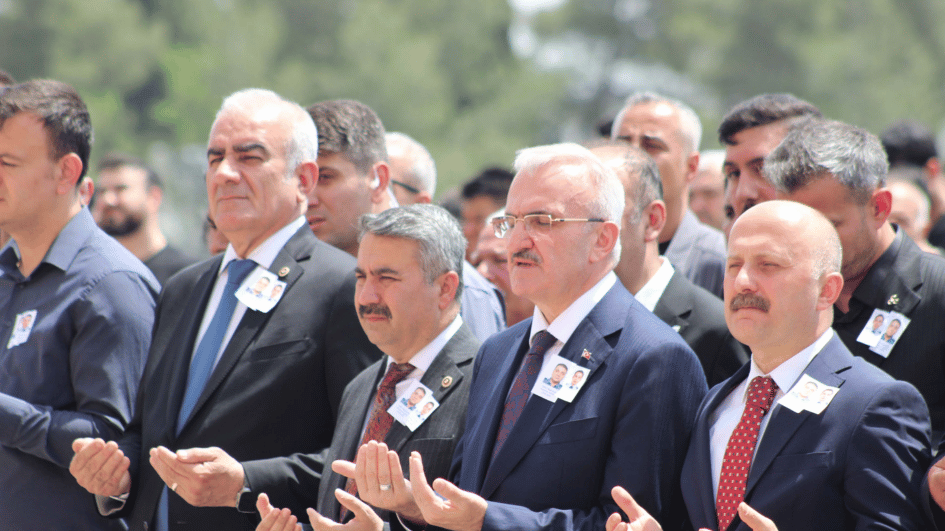Were Turkish spies and diplomats sleeping before coup in Egypt?
I am going to give you the names of two talented spies who might have changed the course of history if their reports had been taken seriously by their political superiors.
Their names are Leopold Trepper and Richard Sorge.
Trepper, born to a Jewish family of Polish origin in the then Austria-Hungarian Empire, was a devout communist, becoming a member of the Palestinian Communist Party against the British in the late 1920s.
Sorge was born to a German-Russian family in Baku, Azerbaijan, and became a communist in Berlin in the 1920s, radical enough to volunteer to work for Soviet military intelligence using journalism as a cover.
Establishing a Belgium-based commercial network supplying material to the Nazi armies occupying Western Europe, Trepper was using his companies as a cover to run one of the most effective spy networks in history for the Soviets; Berlin named it “the Red Orchestra” because of the ability of their wireless operators to “play” their secret radios like a piano.
Sorge, disguising himself as a pro-Nazi journalist, had established a close friendship with one of the inner circle members of the Japanese emperor and provided fresh information to Moscow from Tokyo about possible diplomatic and military moves of the German führer, Adolf Hitler.
All through the spring of 1941, both Trepper in Brussels and Sorge in Tokyo kept feeding Moscow intelligence forecasting that Hitler was prepared to break the nonaggression pact of 1939 with the Soviets, open an Eastern Front to reach oil fields and attack Russia. Joseph Stalin in Moscow was so dedicated to his ideology that he failed to read the change in the political realities.
Hitler’s armies started their “Operation Barbarossa” on June 22, 1941, the date that had been given by both Trepper and Sorge, and caught the Soviet armies unprepared because Stalin refused to believe that he could be wrong in believing Nazi Germany in the first place. If he had, perhaps the Nazi advance could have been stopped much earlier, definitely less blood would have been shed and perhaps there would be no need for the atomic bomb; no one can really know.
It appears from the statements by American and Egyptian officials that the United States had been trying to avoid a coup in Egypt for months by trying to establish a dialogue between the Egyptian opposition and Egyptian President Mohamed Morsi, who was toppled by the army July 3 following civil campaigns (22 million signatures) and mass demonstrations by the opposition parties.
Ankara gave the strongest possible reaction to the coup from day one and still acknowledges Morsi as the legitimate president. The strength of the reaction and steps taken afterward to fine-tune Middle East policies also show that the Turkish government might have been caught a bit unprepared by such a traumatic development in Egypt, which makes this question a legitimate one: What was the Turkish intelligence (MİT) and Foreign Ministry network doing while Egypt was heading toward a major political interruption? Were Turkish spies and diplomats sleeping as Egypt was running toward a coup?
I asked both MİT and Foreign Ministry sources that question yesterday. MİT was not able to make “any comment on operational matters.” My Foreign Ministry source was a bit more helpful: The Turkish diplomatic service has been observing the developments in Egypt closely and is informing Ankara about possible scenarios, including the “most extreme ones.”There are three possibilities then to explain why the Tayyip Erdoğan government in Ankara was so shocked by the coup in Egypt:
1- Turkish spies and diplomats really could not observe and report what had been happening in Egypt since the beginning of the year properly and that left the Erdoğan government in the dark.
2- They did not want to report anything that looked bad about the Muslim Brotherhood-run government in Egypt, thinking that the Turkish government could perhaps punish the messenger; perhaps we should include the huge (government-run) Anadolu Agency operation in Egypt and Turkish thinks tanks that failed to report what was actually happening in Egypt.
3- Turkish spies and diplomats did their job well, made their timely and accurate reporting, but Ankara simply did not want to believe that the elected Morsi administration could fail to run the country properly.
The dust has not settled yet, but it seems we can simply cross out the first possibility considering the centuries-long Turkish experience in the region.











